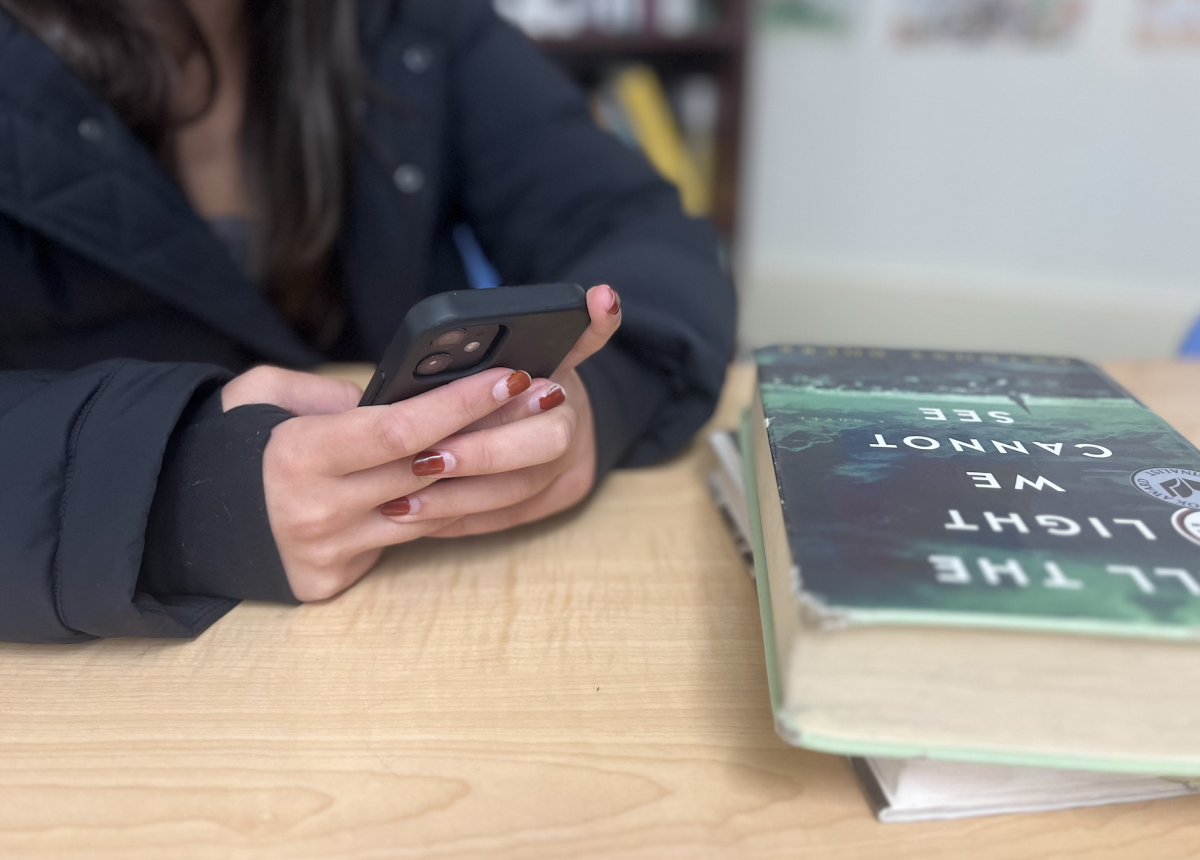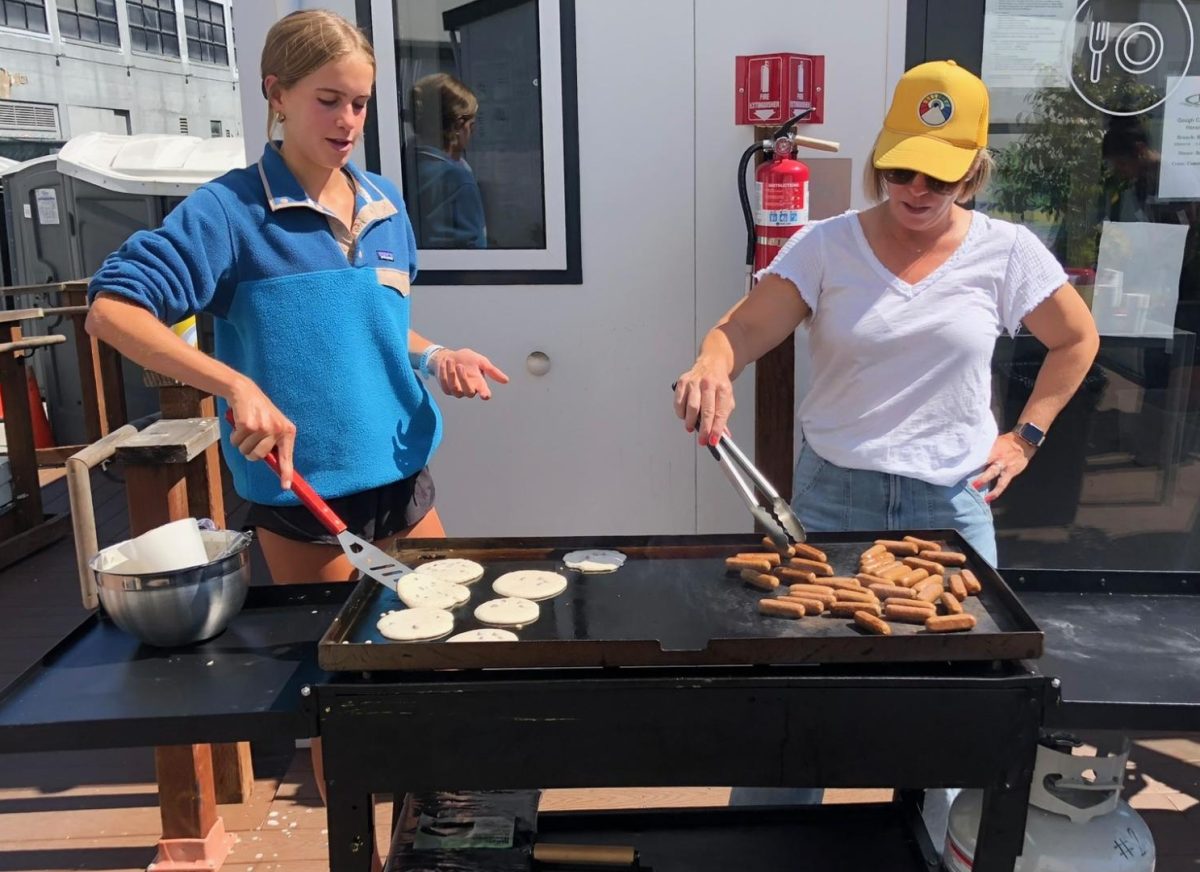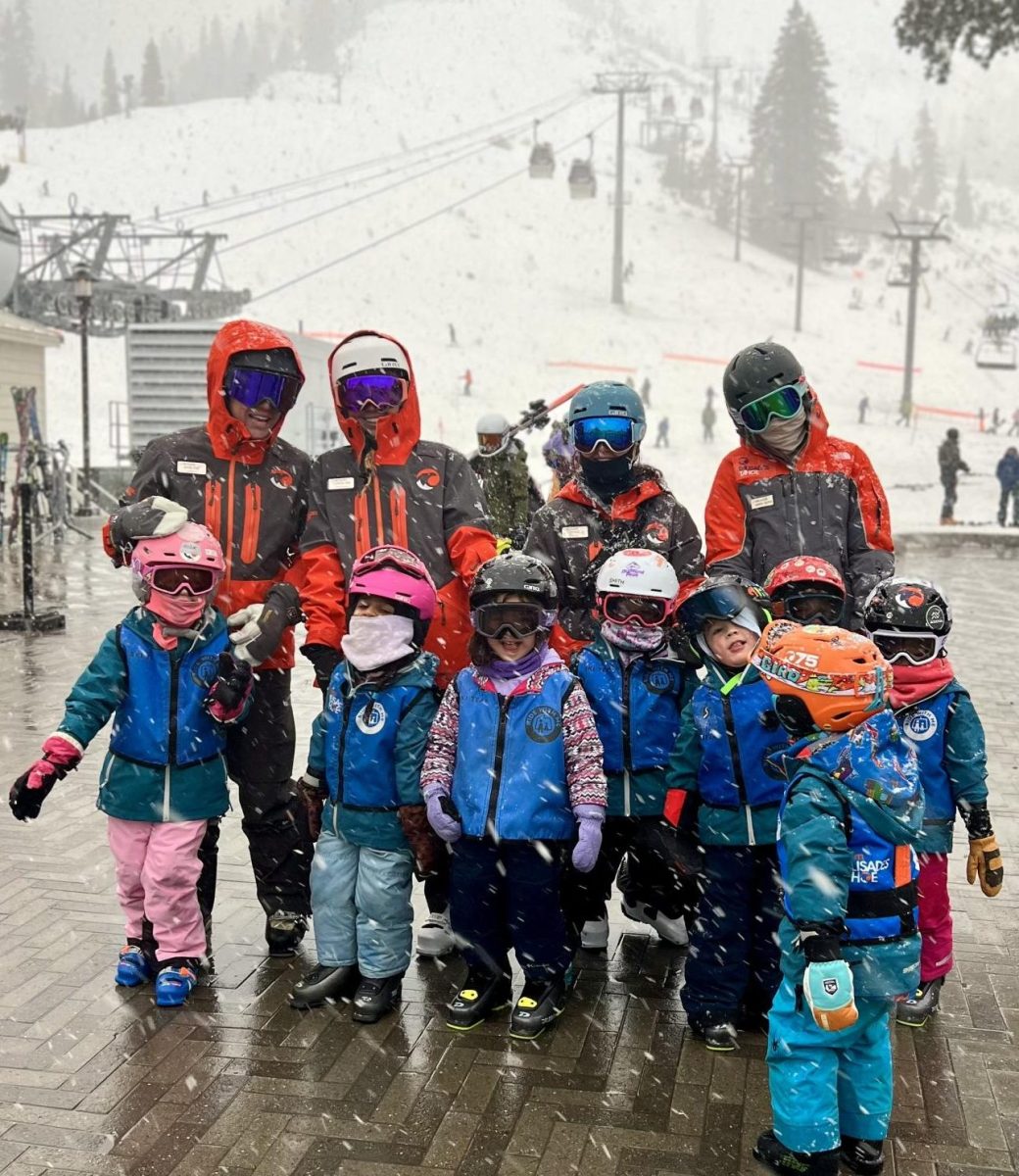Andrew Schroeder, formerly an Academic Workshop and English teacher in the special education department, has taken on the role of the Dean of Student Success this year. One of three deans district wide, Schroeder applied for the job in the spring of last semester and points towards his past experience in special education as a reason why the job is right for him.

“Redwood is a really high performing school; it’s a really good school, for the kids that it’s really good for. [But there are] some kids that don’t necessarily fit in that mold, and those are the kids that I’m trying to support,” Schroeder said. The position was originally chosen with the goal of support and student engagement in mind.
Assistant Principal Sue Hall said site administrators were asked last year for input on ways to better engage students using allocated funds.
“An idea we all thought might be helpful for the kids [was] a dean position so that we would have more time with students because we had three assistant principals and it was hard to help everybody,” Hall said. “We [said] that it would be great if we had another person to really help us help kids stay in class and to engage in school.”
An email from Superintendent Tara Taupier on June 7 introduced the new position. Redwood adopted this new staff role to enhance their outreach program and provide a bigger “safety net” for students.
“The Dean of Student Success provides administrative assistance in areas assigned by the principal at the comprehensive high schools, including student supervision, specifically in attendance, behavior and at a variety of student activities,” Taupier said.

The position appealed to Schroeder because he could utilize his behavioral strengths and background, which includes an administrative credential. This year, transitioning from the classroom to the administrative side of the school has allowed Schroeder to maintain the one-on-one connection with students, while trying something new that plays to his strengths.
Schroeder’s parents were both teachers, but he didn’t originally start off on the same path. He studied social psychology in college, then moved into the marketing and business field, but felt “very unfulfilled.” Having found a love for education and working with students through volunteering and tutoring, Schroeder revisited this passion.
Before Redwood, Schroeder worked in the San Francisco Unified School District at Wallenberg High School in special education and math. Prior to Wallenberg, he taught at a non-public school called Oakes Children’s Center, where he noted many students he worked with were one step above being incarcerated.
“While the work [at the non-public] was tough, it was incredibly rewarding, and you really felt like you were making a difference,” Schroeder said. “So it was like we were really trying to save [the kids] from going into a system that really isn’t designed to support the same way that a school is.”
By drawing information from attendance records and working closely with other staff members, Schroeder is often very busy, but still checks in with 15-20 students via regular meetings or one-time check-ins.
Understanding the needs of students is something Schroeder aims to do by giving different levels of support. He works closely with the assistant principals, the Wellness Center and counselors to create a support system for the students.
“I’m here to support everybody; the logistics of that are you end up supporting some folks more than others,” Schroeder said.
Schroeder’s process begins with recognizing off-task behaviors and implementing proactive responses, which means supporting students to make decisions and be productive in the classroom through restorative means. Restorative practices include positive interventions, contracts and check-ins, according to Schroeder, and aim to repair the disruption through restorative conversation and restorative justice. Practicing empathy and building relationships are key parts of this process. However, he notes sometimes they have to be reactive, and in more serious cases including threats and dangerous activity other staff get involved, such as the assistant principals.
“Sometimes it’s praise, sometimes it’s [encouragement]. The process is unique, I would say that [it] always starts with, ‘How are you?’; a check-in on a social-emotional level.” Schroeder said. “School, especially high school, can be daunting.”
Schroeder additionally emphasized the importance of making school an exciting, engaging learning environment through establishing connections with his students.
“I like to use humor, I like to build relationships. And I think it’s important to [get to] know who the people I work with, and it’s important for them to know me too. So to open up a little bit, and be able to lean on those relationships in the future, [is important],” Schroder said.
Schroeder said the way he is perceived it is similarly valuable for approaching and building relationships with students.
“You know me and you can trust me, and I’m not trying to get you in trouble. I just want to help support you to make the good decision here,” Schroeder said.
Update: Schroeder was previously misquoted in regards to his attitudes towards previous workplaces. The Bark originally reported that he saw Wallenberg High School students as one step above incarceration, when in fact the students were instead from Oakes Children Center. The correction has since been made.












